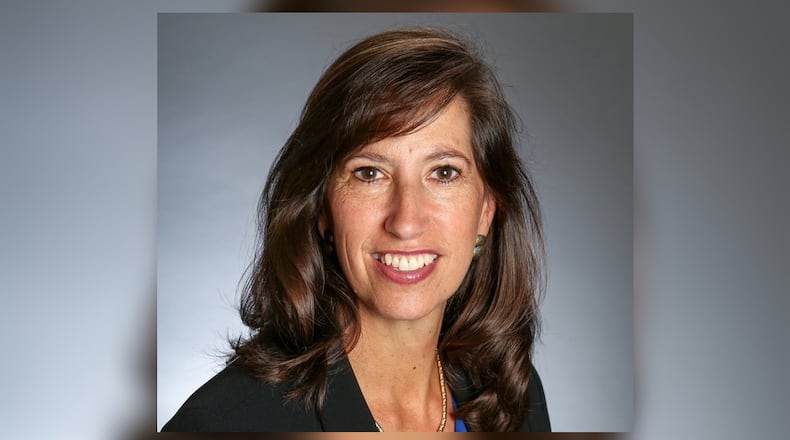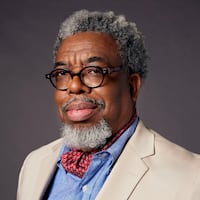As Paige Alexander got off an international flight from Europe June 1, PPE-clad officials from the Centers for Disease Control and Prevention greeted her, asking if she had been to China or Iraq recently.
Driving down Peachtree Street to her parents’ house, she passed boarded-up businesses with broken windows – a result of the intense rioting that had taken place over the weekend after George Floyd’s death.
“That was my welcome to Atlanta,” Alexander said. “It’s like a dystopian movie where I have been cast as an extra.”
Fast forward a month, and the view from Alexander’s office, where she is the new CEO of the Carter Center, is anything but dystopian.
Birds play outside her huge bay windows as groundskeepers tend to the landscape of the international organization Alexander is charged with running.
She replaces former CEO, Ambassador Mary Ann Peters, who retired.
“For me, this is a homecoming,” said Alexander. She is an Atlanta native who graduated from Pace Academy in 1984.
“Coming back to the Carter Center is the only job I would have returned for, because it is a perfect combination of the political work I had done when I worked on campaigns, the policy work I have done in the U.S. government and the (non-governmental organization) work I have done in Europe and here. The Carter Center embodies that. It also creates an opportunity to be active and to speak out, one of the things that mattered to the Carter Center, the Carters, and to the staffers for a long time.”
Between arriving and her first day on the job on June 15, much happened locally, from the protests over the death of Floyd, and the local police killing of Rayshard Brooks followed by more protests, then voting problems in a bitter primary election that left many Black voters in Fulton and DeKalb counties feeling disenfranchised.
RELATED: Carter Center calls on nation to finally address police brutality
President Carter had already addressed the police killing of George Floyd, saying that he was pained by "tragic racial injustices and consequent backlash across our nation in recent weeks."
On her second day on the job, Alexander released a stinging statement from the Carter Center calling for an end of the use of excessive force by police against African Americans.
It was one of the first times the Carter Center weighed in so heavily on a local issue.
“It is a time to be active. It is a time for reckoning. It is nice to be at an institution where these things have always been the core principles of what we have worked on,” Alexander said.
The Carter Center does work such as monitoring international elections for corruption, resolving conflicts, eradicating diseases, improving mental health and advancing democracy.
“We are an organization that focuses on these issues internationally, but it would have been difficult for us to not recognize what was happening in our own backyard.”
Alexander called it part of America’s “sudden realization that things really have to change.”
“As an international organization, we are not pivoting to do domestic work, but we are also not avoiding the conversation,” Alexander said.
RELATED: Carter Center appoints Paige Alexander as new CEO
Credit: The Carter Center
Credit: The Carter Center
She came from the European Cooperative for Rural Development, where she was the executive director and worked with African nations to improve the livelihoods of families and communities through farming.
Prior to that, she twice held leadership positions at regional bureaus of the United States Agency for International Development, covering missions and development programs in 25 countries from Eurasia to the Middle East and Africa.
As CEO, Alexander heads up a leadership team joined by Jason Carter, the chairman of the center’s board of trustees, as the 95-year-old President Carter and his wife Rosalynn Carter have stepped out of the limelight. The couple founded the center in 1982.
Alexander first met Carter Dec. 17, 1979. British Prime Minister Margaret Thatcher was making a state visit to the White House, and because Alexander’s parents had worked on Democratic campaigns, the family was invited to the Rose Garden ceremony.
After the ceremony, Carter came over to greet the Alexanders, including the teenage Paige.
“He shook my hand,” Alexander said, still excited 41 years later. “My mother tells the story that I said I was never gonna wash my hand again.”
Credit: Jim Galloway
Credit: Jim Galloway
Since moving back to Atlanta, Alexander has had has several conversations with Carter. He is doing well after several health setbacks last year, she said.
“It was lovely to sit down with him and we talked about so many issues,” Alexander said. “We talked about everything that was happening in Liberia to elections to what is on TV. It was a wide-ranging conversation.”
They also talked about the Carter Center’s future.
The COVID-19 pandemic has forced businesses and non-profits to think and operate differently. This year, for the first time in decades, the Carter Center will not hold its annual retreat, which usually raked in millions of dollars in donations. It will likely be virtual.
“But President Carter has been masterful in making sure we save for a rainy day,” Alexander said. “We have weathered crisis before, and we will weather it again now. There is belt-tightening happening all over, and we will make adjustments when we have to, but we are very fortunate.”
“I am two weeks in, so I am not really sure if major changes are going to keep happening, but we will always be true to the work.”
About the Author
Keep Reading
The Latest
Featured






